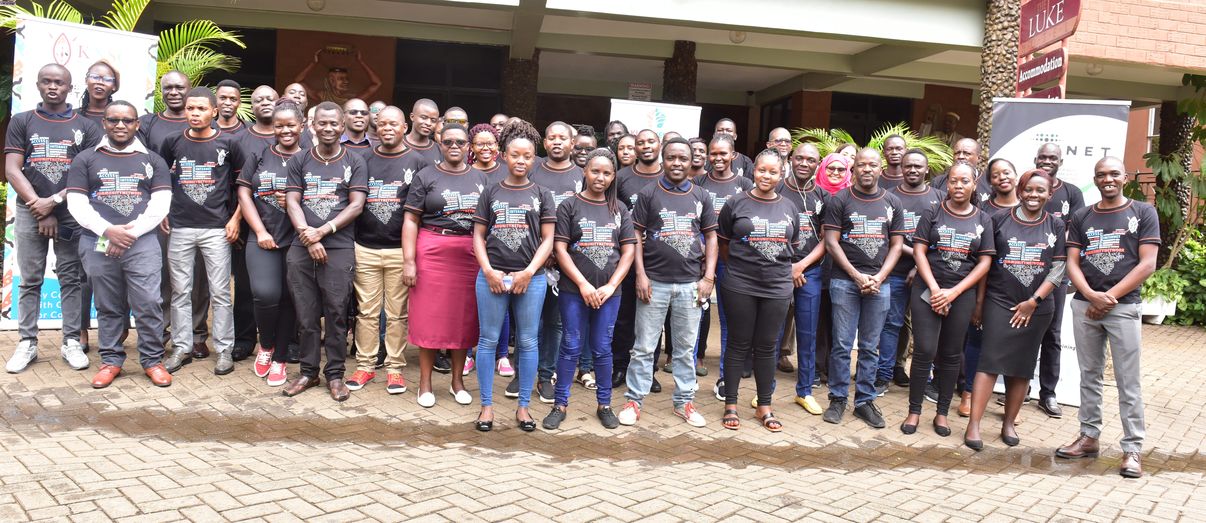Communities of practice are groups of people who share a concern or a passion for something they do and learn how to do it better as they regularly interact to promote the spread of best practices.
Under the National Exchange Fund from APC sponsored by UKAid, virtual mentorships were held, and three physical CoP workshops; Network and Infrastructure, sustainability, and local content creation.
The second iteration of the Kenya School of Community Networks had several workshops to create communities of practice (CoPs).
The Kenya School of Community networks is a capacity-building initiative towards building local expertise around the seeding, growth, and sustainability of community-based connectivity initiatives.
The school was a mix of sessions around the CoPs and connectivity issues addressed by various experts revolving around:
- Public funding for community networks through the USF
- Financial mechanisms for community networks.
- Licensing procedure for community networks
- Digital inclusion of marginalized groups
- Digital security at the grassroots level
- Dynamic Spectrum Access
- A statistical representation of data (Infographics) towards advocacy or showcasing progress,
- Digitization of education
- Online gender-based violence (OGBV)
Deliberations on the strengthening of the community networks movement post-formation of the national consortium
The networks and initiatives represented at the school were:
- Dunia Moja (Kilifi)
- AHERINET (Kisumu)
- Ng’arua Maarifa Center (Laikipia)
- Athi community network (Meru)
- Oasis Mathare (Nairobi)
- Action Pour Le Progrès (Kakuma)
- Ngikeyokok Community Network (Lodwar)
- Kijiji Yeetu Community Network (Nairobi)
- Siaya Community Library (Siaya)
- Global Innovation Valley (GIV, Turkana)
- Shining Hope For Communities (SHOFCO)
A Center for Youth Development (CYD) representative was also in attendance, a community network in Malawi. This speaks volumes to the commitment of community networks in Africa to the cross-pollination of ideas toward their growth.
There were various presentations over the three days from participants showcasing their projects. One notable presentation from the local content participants was the Ngikeyokok Community Network which has been developing educational 2D animations on the preservation of their culture.
The founders of community networks represented at the school had a panel discussion discussing the needs that led to the birthing of those community networks, their successes, challenges, and visions on how CNs can innovatively address the digital gap. Various stakeholders were represented at the school.
Check the next blog for more on stakeholder participation.
This is a series of our publications on Community Networks.
_____________________________________________________________________________
Ms. Catherine Kyalo is the KICTANet Africa Regional Coordinator for Community Networks under the APC-LOCNET initiative. She is passionate about community welfare and enjoys yoga to rejuvenate. LinkedIn | Twitter
![]()




